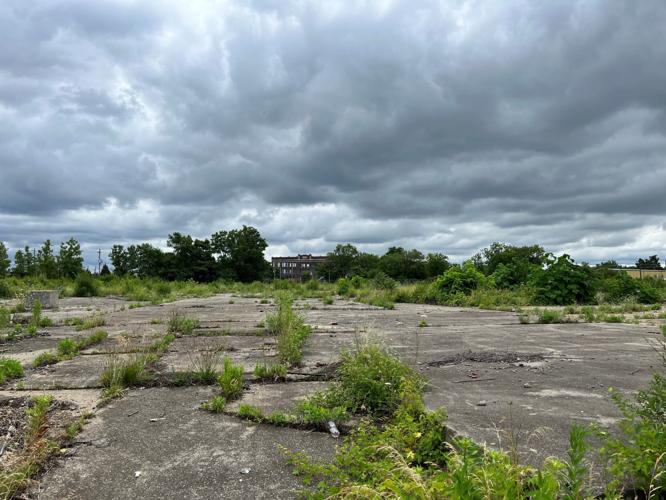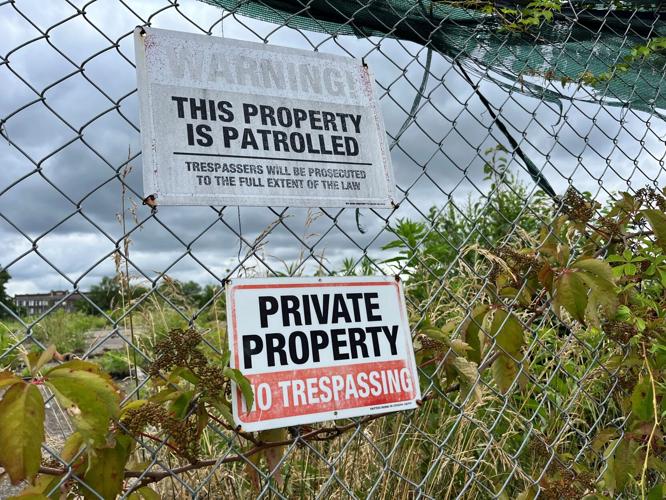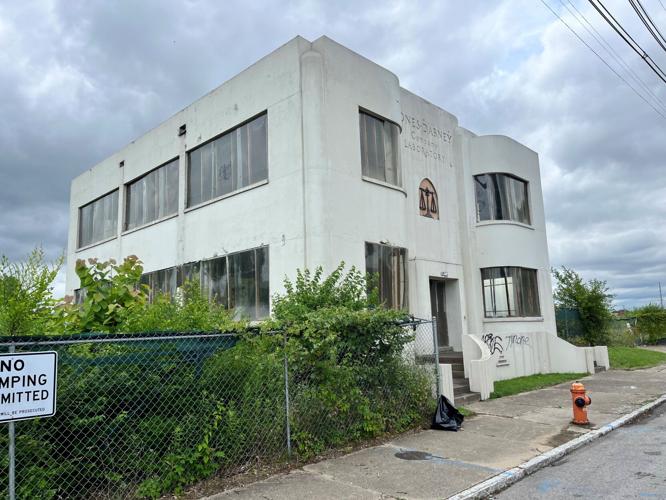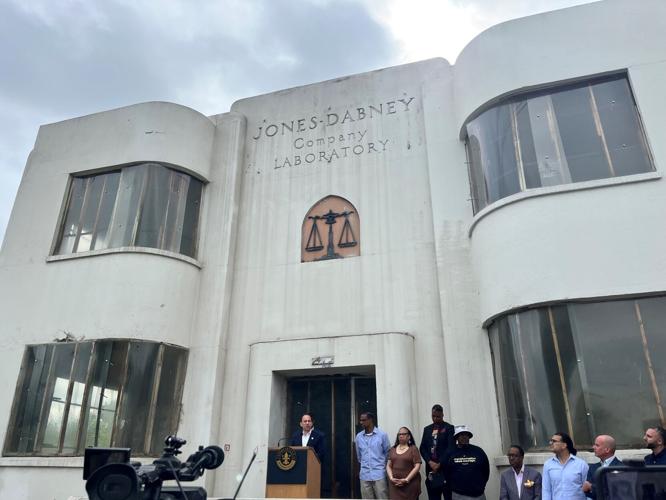LOUISVILLE, Ky. (WDRB) – The former Rhodia industrial site in the Park Hill neighborhood has sat vacant for nearly three decades. For nearly two decades now, Metro government’s efforts to sell the property for redevelopment have failed.
But city officials heralded a new day for the 17-acre tract near 11th and Hill streets on Thursday, announcing that work to clean up the land is imminent and a development plan should be ready by the end of this year.
Mayor Craig Greenberg said crews will start the environmental action “as soon as possible,” although he and project officials weren’t able to provide a specific timeline for its completion. Previous assessments show that the work will include excavating contaminated soil, among other things.
The site was home to the Jones-Dabney Co., a varnish manufacturer, during the early to mid-20th century and also housed dry cleaning businesses, a gas station and other chemical production before a plant there closed in 1994. It’s now surrounded by a chain-link fence, with one lone two-story building still standing.
Metro government, which bought the land in 2002, selected the Re:land Group real estate firm in 2020 to eventually buy and redevelop the property. The Metro Council last year allocated $10 million in coronavirus stimulus funds for the cleanup, which Greenberg said will be “moving full speed ahead.”
“The conversations that are being had about what this place will look like are incredibly exciting,” he said. “We believe this to be the cornerstone for future development in the Park Hill and Algonquin neighborhoods, developments that will improve the quality of life for the people who live here and help us reverse decades of disinvestment and neglect.”

Louisville Mayor Craig Greenberg speaks in front of the former Rhodia site near 11th and Hill streets, June 22, 2023 (WDRB photo).
An advisory board representing residents of Park Hill and the adjoining Algonquin neighborhood is working with Re:land to develop the master plan, which will guide any new uses on the site. Greenberg said development likely will be done in phases.
In seeking interest in the land, former Mayor Greg Fischer’s administration required any developer to agree not to add liquor stores, rehab or drug treatment facilities, half-way houses, car lots, massage parlors and tobacco/vaping businesses. Heavy manufacturing also is prohibited.
Re:land has proposed “mixed mixed-use and mixed-income housing” on the former Rhodia site and 300,000 square feet of space for uses such as commercial and retail space, restaurants offices and a grocery or cafeteria. Half of the land would be set aside for green space.
“Once the remediation has been completed, then we will start with the new narrative, the new image of this community,” said Kathleen Parks, a member of the advisory board. “You will see the placemaking take place where the people will be involved in the decision making.”
Taken together, Park Hill and Algonquin had 52 percent of their residents living in poverty in 2017, compared with 16 percent in Jefferson County, according to the Kentucky State Data Center’s analysis of federal census data. The neighborhoods were 66 percent Black at that time.
The proposed redevelopment would be across 11th Street from the Parkway Place public housing complex. Bruce Sherrod, who said he's lived at Parkway Place for10 years and is a member of the advisory board, said the community is “starving for services and a better way of life.”
“I would like to see endless possibilities, so whatever that might be,” he said. “Long as it's thriving, sustainable, and helps the folks in the community, I'm all for it.”
Re:land's development agreement with the city calls for the company and the city to negotiate a purchase price and other terms for the land in a separate contract.
Jim Beckett, Re:land’s managing partner, said the project ultimately would have to be financed with public and private sources. Even though his company and its partners plan to redevelop the site, he insisted that the focus isn’t on transforming vacant property.
“The 17 acres represents a seed, the beginning, but not the goal,” he said. “The goal is that all people in these neighborhoods live in a community where they have the opportunity to meet their fullest potential.”
Copyright 2023 WDRB Media. All rights reserved.


















